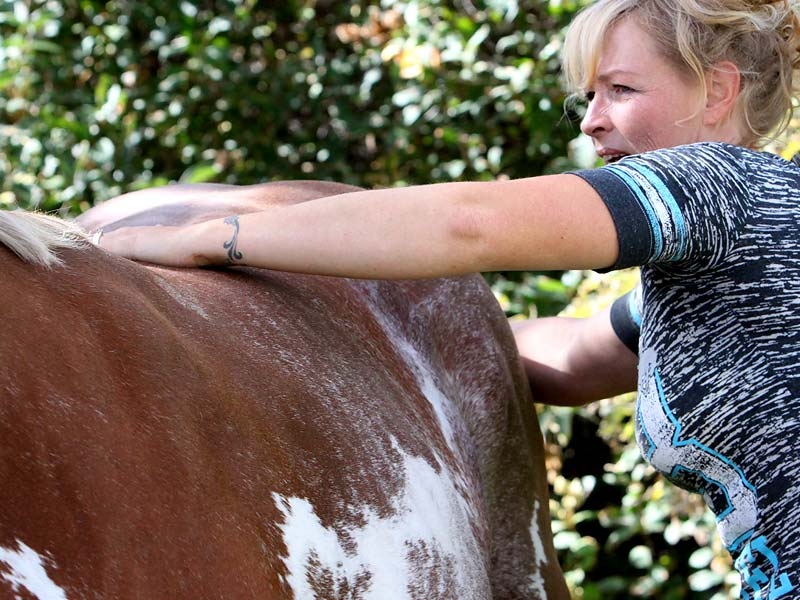
We have compiled a list of some of the most frequently asked questions about the ERT Course.
Please read through the questions below to see one of them, might address yours!
We welcome further inquiries if you have read through all of the information and still can’t find what you’re looking for.
Image: Shantel testing motion in the thoracic spine.
Shantel Perreal – her biography and qualifications can be found by clicking on her name.
Students will be “in the classroom” every second month, for 5 consecutive days. Testing will occur on the first day back after the break between modules. Homework will be assigned at the end of each module to be completed and handed in. Practical hands on case studies will also be assigned each module.
This is completely up to you. Some students require more book time than others. The practical, hands on assignments will probably require 10-20 hours per module depending on how you choose to tackle them.
We are a private course, and therefore, students do not qualify for government assistance.
Tough question, right now, Shantel is the only one! The biggest character quality would be a desire to help the horses. Each person is going to bring their own unique spin to the title, but the hope is that they will all enjoy the “puzzle” that each horse asks them to put together.
Absolutely NOT! We need our vets and the medical, modern knowledge that they bring to the table. We should compliment each others work and be able to work together on a professional level.
Good question! An Equine Remedial Therapists job is to assess each individual equine client and provide the best possible rehabilitative or restorative care for that horse. The ERT may use a combination of therapies learned such as osteopathy, chiropractics or massage. They typically build a client base that requires travel from one location to the next. Each day is different!
There is no set expectations or formula to this question. As students will be self-employed, it is completely dependent on what they put into their business, horses and clientele. Therapists treating horses charge anywhere between $50 to $250/ horse depending on their experience, demand and reputation.
To date, we have had many students join us from various other courses across North America. So far, we have found that they were all missing integral pieces to their education in being able to understand the physiology of the horse. The course is taught in a progressive format, laying on concept ontop of another and eventually tying it all together. For this reason, we do not have challenge exams or allow prospective students to skip modules.